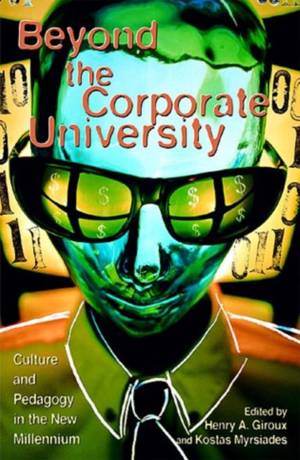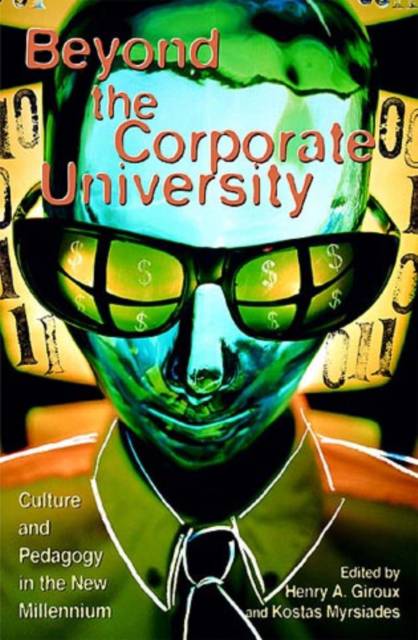
Je cadeautjes zeker op tijd in huis hebben voor de feestdagen? Kom langs in onze winkels en vind het perfecte geschenk!
- Afhalen na 1 uur in een winkel met voorraad
- Gratis thuislevering in België vanaf € 30
- Ruim aanbod met 7 miljoen producten
Je cadeautjes zeker op tijd in huis hebben voor de feestdagen? Kom langs in onze winkels en vind het perfecte geschenk!
- Afhalen na 1 uur in een winkel met voorraad
- Gratis thuislevering in België vanaf € 30
- Ruim aanbod met 7 miljoen producten
Zoeken
Beyond the Corporate University
Culture and Pedagogy in the New Millennium
Henry A. Giroux, Kostas Myrsiades
€ 155,45
+ 310 punten
Uitvoering
Omschrijving
A decade of budgetary, policy, and ideological contention has resulted in American universities being run by management models and the nation is seen by some to have lost its vision of the public good and the necessary components of a democracy. This work seeks to redress these trends.
Specificaties
Betrokkenen
- Auteur(s):
- Uitgeverij:
Inhoud
- Aantal bladzijden:
- 360
- Reeks:
Eigenschappen
- Productcode (EAN):
- 9780742510470
- Verschijningsdatum:
- 20/08/2001
- Uitvoering:
- Hardcover
- Afmetingen:
- 155 mm x 237 mm
- Gewicht:
- 400 g

Alleen bij Standaard Boekhandel
+ 310 punten op je klantenkaart van Standaard Boekhandel
Beoordelingen
We publiceren alleen reviews die voldoen aan de voorwaarden voor reviews. Bekijk onze voorwaarden voor reviews.









